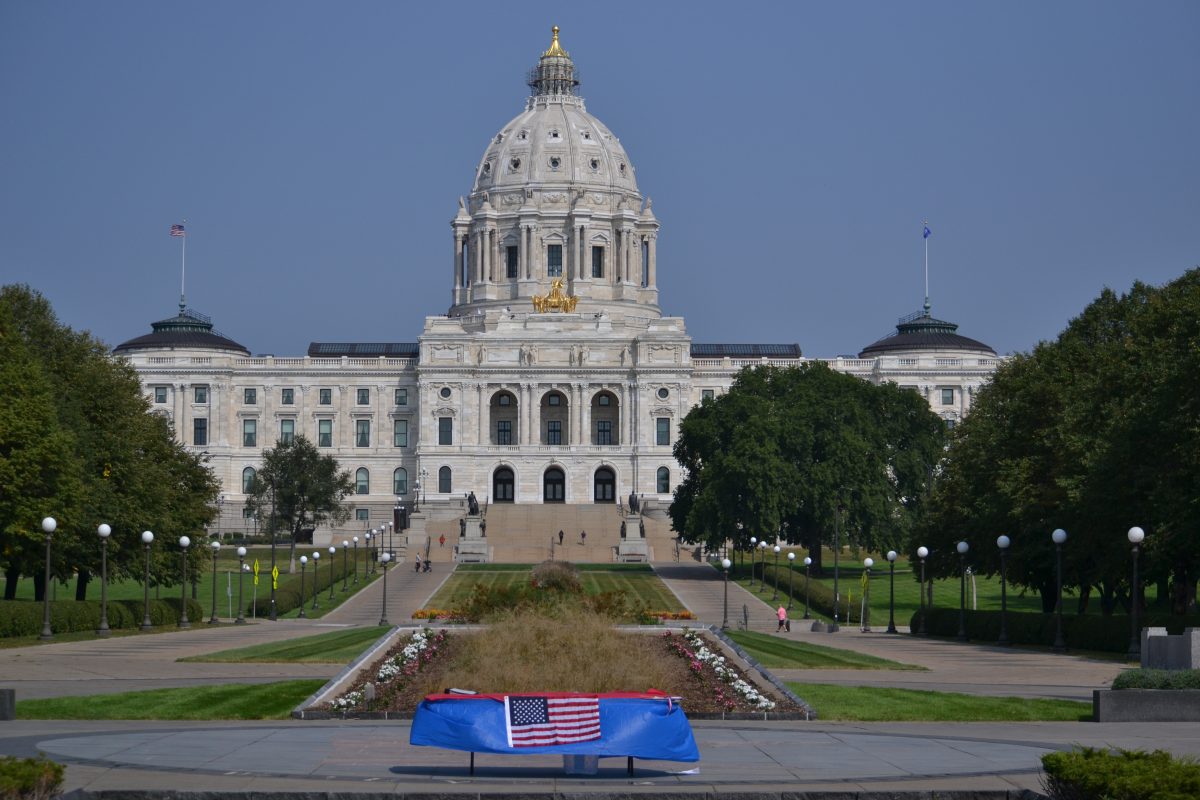As Minnesota state legislators enter a new session with a budget surplus, senators provide insight on what to expect in the spring session.
For the past several weeks, senators have been preparing and discussing plans for the new session, which starts on Feb. 12. The last session ended on time – with no special session for the eighth time in 40 years – as well as with a notable budget surplus.
Republicans hope to limit spending and update previous bills in the upcoming sessions. Democrats’ plans have not been solidified yet, but they hope to make higher education more accessible and equitable for students.
The Minnesota legislature is entering the spring session with a forecasted budget surplus of $2.4 billion, around an $800 million increase from previous estimates. This is a decrease from the historic $17.6 billion surplus they had in 2023, though.
Though there appears to be a significant surplus, a deficit could be expected in the coming years due to a structural imbalance when spending surpasses $2.3 billion. To prevent a deficit, governments usually raise taxes and cut spending, according to Sen. Zach Duckworth (R-Lakeville).
“The government can’t keep growing and spending expecting our taxpayers to bring that burden,” Duckworth said.

The last session, which ended in May 2023, saw a 40% increase in spending. Spending for 2023 included a $2.6 billion package for bonding and infrastructure alongside a $1.15 million one-time rebate, child tax credit and local government aid.
Senate Minority Leader Mark Johnson (R-East Grand Forks) said in a statement last session that a consistent record of budget surplus turned into dangerous near-term deficits. Schools were bombarded with new mandates and a $10 billion new tax increase buried Minnesotans.
“This session, Republicans will work to repair the damage from Democrat’s out-of-control spending,” Johnson said in the spring statement.
The Minnesota Legislature passed major bills last May, including the recreational use of marijuana, free tuition for families making less than $80,000 and universal school meals, to name a few. Some legislation needs modification, namely the recreational use of cannabis, according to Duckworth.
Duckworth said he expects this spring session to assess previous legislation and consider modifications based on feedback they have seen thus far from constituents. Cannabis legislation could face change due to a lack of leadership in the Office of Marijuana Management and limitations regarding who can use cannabis.
“There’s a really legitimate question as it relates to minors, and whether or not they can illegally smoke or possess marijuana,” Duckworth said. “Pretty big question to not have been covered in that bill.”
The previous session witnessed the education omnibus bill which will require changes to the school officer language and school funding. Duckworth said school districts have said the timeline for training and curriculum expenses needs to be modified.
“Folks really champion the fact that there is a massive, huge historic investment education,” Duckworth said. “As you’ve seen over the last few months, school districts and teachers are saying, well, where is it?”
Sen. Aric Putnam (DFL-St. Cloud), a member of the higher education committee, said in a statement Saturday that higher education has been taken for granted for too long. Putnam is also a professor at St. Cloud State University. Instead, the committee is aiming to take a more proactive approach, according to Putnam’s statement.
“We are actively promoting a more equitable, accessible higher education system where students needs and rights are respected and faculty are supported,” Putnam said in the statement.
There are also conversations about what to do with the University of Minnesota’s medical school and the failed merger in May, according to Duckworth. He expects questions about the state’s role alongside the two medical companies and more.
“We want to have a great high-quality medical program at the University of Minnesota,” Duckworth said. “At the same time, it has to be fair to taxpayers, it has to be fair to students.”
Duckworth said the best way for senators to understand how students are impacted by their legislation is to hear their feedback. Duckworth said all students need to be as engaged as possible to better understand all sides of their stories.
“We can grow government, grow operations or University of Minnesota and have all these different initiatives with all other raised tuition, or we can focus on what our true purpose is, which is to provide great higher education for folks, great opportunities, and double down on that,” Duckworth said.
















Susan
Feb 7, 2024 at 2:13 pm
I would like a little more balance in this article. The Legislature is controlled, in both chambers, by DFLers. It’s a small majority, and I’m glad you quoted the Republicans, but the quotes are almost all from Republicans.
Also, investing in education brings money back to the state. Wouldn’t you like to have your tuition reduced? Might make you a better earner, which means you would pay more in taxes.
Ken DeYoe
Feb 7, 2024 at 10:36 am
I simply hope that “…to provide great higher education for folks, great opportunities…” doesn’t double the outrageous, ever increasing cost of education.